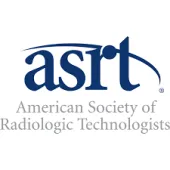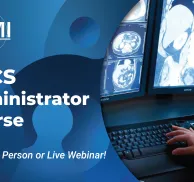
- DocumentNavigating Breast Imaging Workshop Flyer.pdf (259.28 KB)
Navigating Breast Imaging: A 2-Day Workshop for Healthcare Professionals
About this Program
In comprehensive cancer care, breast navigation is more than a role—it is a lifeline. Many facilities lack dedicated breast navigators, leaving patients to face the overwhelming journey of a cancer diagnosis alone. Breast imaging navigators support patients from diagnosis through treatment, ensuring they understand their options, know what questions to ask, and feel supported every step of the way. By removing barriers and reducing fear, breast navigators play a critical role in improving outcomes for oncology patients.
This two-day intensive course offers a deep dive into breast health imaging navigation, equipping imaging technologists and nurses with the skills, confidence, and knowledge needed to excel as breast cancer navigators. Through case studies, breast pathology reviews, and live practice sessions delivering pathology results with mock patients, participants will gain hands-on experience that enhances their ability to guide patients through the healthcare journey with clarity, compassion, and expertise.
Breast Navigator Certification Explained
While national certification is an important step for many professionals, becoming a breast imaging navigator requires both education and experience. Certification through the NCBC (National Consortium of Breast Centers) involves meeting eligibility requirements—including 1,500 hours of relevant work experience—and passing a comprehensive exam.
This MTMI course meets the educational component of breast navigator certification requirements, exceeding the required eight hours of focused training. Whether you are preparing for certification or seeking to refine your navigation skills, this course offers practical, real-world training that enhances both professional expertise and patient care.
Educational Objectives
After this Breast Imaging Navigation workshop, participants will be able to:
- Understand the definition, role, and history of breast imaging navigation
- Identify the essential knowledge that one navigating in the imaging spectrum would need and be able to explain that information to a patient in lay terms
- Understand how navigation in the breast imaging spectrum performed and be able to apply that in the clinical setting
- Evaluate who should navigate breast patients based on the spectrum that they are being navigated in and the clinical skills of the navigator
- Recognize the importance of breast imaging navigation in enhancing patient care and outcomes
The instructors leading our breast navigator certification courses are seasoned professionals with years of hands-on experience in breast care and breast imaging navigation. They are ready, willing, and eager to share their expertise, equipping you with the skills and confidence needed to excel as a breast cancer navigator.
Schedule
What this course will cover
In these breast navigator certification courses, we pack everything you need to expand your breast care expertise and advance your medical education in just two days. Whether you are new to the field or refining your navigation skills, this program delivers essential knowledge to help you guide patients from diagnosis through treatment with confidence and clarity.
Day 1
- What is Navigation?
- The history
- Barriers
- The matrix
- What do I Need to Know to be a Navigator?
- Breast cancer statistics
- Risk factors
- Risk assessment models
- High risk patients
- Breast cancer prevention / risk reduction strategies
- Breast anatomy
- Benign breast disease
- High risk findings
- Cancer
- Non-invasive
- Invasive
- Imaging
- Mammography
- CEM
- Ultrasound
- MRI
- Clinical trials
- The comprehensive breast program
- Understanding pathology
- Morphology
- ER/PR
- Histologic grade
- Ki67
- Cancer treatment
- Surgery
- Radiation
- Chemotherapy
- Hormone therapy/ aromatase inhibitors
- Integrative therapy
Day 2
- How is Breast Navigation Performed?
- Navigator duties
- Sample workflows
- Case studies
- How to deliver pathology results
- Real time practice (delivering benign, high-risk and cancer pathology)
- Who Should Navigate?
- Navigating in the breast spectrum
- Becoming certified
- Why is Breast Navigation Important?
Audience
Who should attend?
This course is ideal for imaging technologists, nurse navigators, and healthcare professionals looking to start or advance their career in breast navigation. From oncology practices to breast centers, this program was designed for:
- Technologists interested in starting a career as an imaging navigator and learning the fundamentals of the role
- Current imaging navigators seeking to enhance and refine their navigation skills
- Organizations exploring the addition of breast navigation services and looking for a solid foundation to get started
- Nurses with experience in the cancer care spectrum who want to expand their expertise into imaging navigation
Program Faculty
Meet your presenter(s)

Tricia Trammell
CRA, FAHRA, BA R.T. (R)(M)(QM)(BS), CHBN
Tricia Trammell, CRA, FAHRA BA R.T. (R)(M)(QM)(BS), CN-BI, is the Imaging Operations Manager for UT Southwestern Medical Center at Moncrief Cancer Institute in Fort Worth Texas. Registered in multiple modalities, she has been a technologist for twenty-six years, with nearly half of that time spent in leadership roles. She has spent the breadth of her career in breast imaging, helping her to deep understanding the of the operations of a comprehensive breast care center. She has been a Certified Breast Navigator since 2011 and has helped implement an imaging navigation program for two health systems. Her passions include breast imaging navigation and creating psychological safety in the workplace. She is an active member of the AHRA, is a Certified Radiology Administrator and Fellow with AHRA, and is currently the vice-chair of the Radiology Administrators Certification Commission (RACC).
Credits
Accredited training programs

ASRT Category A
This program provides 16 hour(s) of Category A continuing education credit for radiologic technologists approved by ASRT and recognized by the ARRT® and various licensure states. Category A credit is also recognized for CE credit in Canada. You must attend the entire program to receive your certificate of completion.

Nursing CBRN
Provider approved by the California Board of Registered Nursing, Provider Number CEP# 16205 for 16 contact hours.
Tuition
Convenient payment options available
| Audience | Price | Early Price | Member Price | Member Early Price |
|---|---|---|---|---|
| Technologist | $549.00 | $499.00 | $519.00 | $449.00 |
| Nurse | $549.00 | $499.00 | $519.00 | $449.00 |
At MTMI, we believe in empowering healthcare professionals to provide quality breast care for every patient. We also believe in making high-quality breast navigator certification training accessible to those seeking continuing education credits and skill upgrades in breast imaging navigation.
Early Pricing Guidelines
Qualifying 'Early' registrations must be made at least 14 days in advance for the program.
Cancellation Policy
“Hands-On” Courses
Refunds, minus a $50 processing fee, will be granted for cancellations received prior to 10 days before the program. Cancellations received within 10 days of the program will receive a credit toward a future MTMI program, minus the $50 processing fee. No refunds will be made after the program starts. MTMI reserves the right to cancel any scheduled program because of low advance registration or other reasons. MTMI’s liability is limited to a refund of any program tuition paid. MTMI recommends that attendees use refundable airline tickets. In case of cancellation of a program for any reason, MTMI is not responsible for travel costs incurred by attendees including non-refundable airline tickets.









 at checkout.
at checkout.